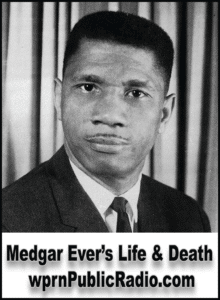Black History | Medgar Evers: The Man Who Challenged Jim Crow 
and Inspired a Movement
Medgar Evers played a crucial role in the American Civil Rights Movement, highlighting the harshness of racism and inspiring a generation to strive for equality. Evers was born in Decatur, Mississippi, on July 2, 1925, and grew up in a society plagued by segregation and racial injustice. Following his brave service in World War II, Evers came back to a nation that continued to deny him and other African Americans their complete rights. The stark injustice motivated him to join the civil rights movement actively. In 1952, he completed his studies at Alcorn State University and married Myrlie Beasley. They had three children and were both dedicated to civil rights.
In 1954, Evers took on the role of the first field secretary for the Mississippi NAACP. He organized voter registration drives and economic boycotts and investigated violence against black Mississippians. His work was filled with peril. However, he persevered, fully grasping the crucial significance of his purpose. He played a vital role in the struggle to integrate the University of Mississippi. He was instrumental in supporting James Meredith’s groundbreaking achievement of becoming the university’s first black student in 1962, a pivotal moment in the fight for civil rights.
Evers went above and beyond in his commitment to civil rights, not just focusing on voter registration and desegregation. Additionally, he spearheaded efforts against economic injustices and openly denounced Jim Crow laws that enforced racial segregation. Those who opposed racial equality targeted him due to his efforts in securing justice for African Americans. He became a target due to his high visibility and influence.
Medgar Evers’ life tragically ended when Byron De La Beckwith, a white supremacist, assassinated him in his Jackson, Mississippi, home’s driveway on June 12, 1963. Evers’s murder catalyzed the civil rights movement, emphasizing the steep price of the fight for equality and the widespread violence activists encountered. President John F. Kennedy was motivated to advocate for more extensive civil rights laws after his death.
The impact of Medgar Evers on the civil rights movement cannot be measured. He exemplified the qualities of resilience, courage, and determination that defined the fight for equality as a leader. His efforts paved the way for numerous achievements in the civil rights movement and established a model for future activists. Evers’s life and legacy inspire those fighting for justice and equality, reminding us of the price of freedom and the strength of individual action against oppression.
![]()
